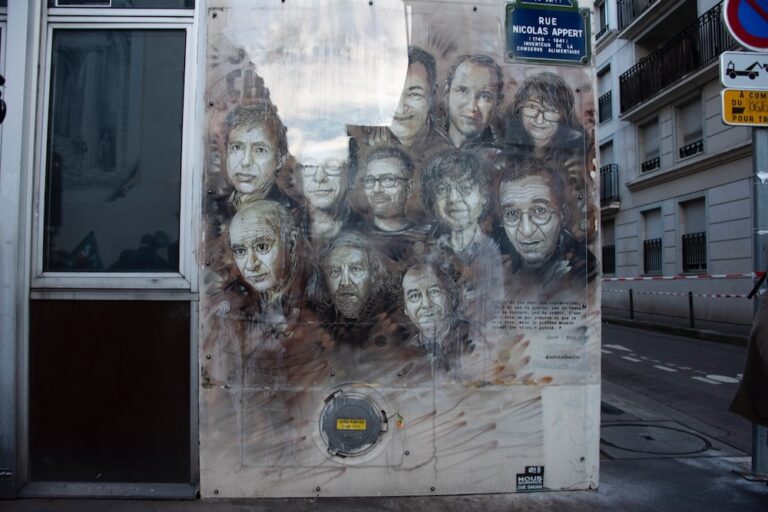WiPC held a day-long session at the Congress, at which pressing issues of repression of writers and writings were discussed.
(WiPC/IFEX) – From 19-25 October, 2009, delegates from PEN Centres worldwide gathered to take part in the 75th International PEN Writers in Prison Committee Congress, held in Linz, Austria.
The Writers in Prison Committee of International PEN held a day-long session at the Congress, at which pressing issues of repression of writers and writings were discussed. This led to the presentation to the Assembly of Delegates of eleven resolutions, which were subsequently adopted, on countries including China, Iran, Russia, Eritrea and Cuba. See below for details.
Another key topic of discussion was around the fact that next year, 2010, marks the 50th Anniversary of the Writers in Prison Committee, which was set up in April 1960 to gather information on writers under attack and to mobilise the International PEN membership in their defence. Participants in the WiPC session were presented with plans and shared ideas to celebrate this remarkable anniversary throughout the whole year in 2010.
The eleven resolutions relating to the work of International PEN’s Writers in Prison Committee can be found on International PEN’s website: http://www.internationalpen.org.uk/go/committees/writers-in-prison (see right hand navigation bar)
– The Congress approved a ‘Declaration in Defense of the Freedom to Write in the Americas’ that raises concerns at attacks against writers and print journalists in the region, including assassinations in Mexico, Brazil, Venezuela, Colombia, Guatemala, Nicaragua, Ecuador, Haiti and Peru. It also raised alarm at disappearances in Mexico, while in other countries countless others have been threatened with death. The imprisonment of at least 26 writers and journalists in Cuba and Ecuador is also raised as a concern, as is the use of defamation and criminal libel laws, false charges and government control over publication of books.
– A resolution on China protests the continued attacks against intellectuals, writers, journalists and cyberdissidents of which over 40 are detained. It also protests the use of three-year re-education through labour terms, as well as subversion, state secret and national security laws to suppress free speech. It raises alarm at attacks against writers in the autonomous regions of Tibet, Xinjiang and Inner Mongolia. It notes the high numbers of members of the Independent Chinese PEN Centre among those detained and suppressed in China.
– The large numbers of writers, journalists and librarians that remain detained in Cuba despite the lifting of European Union sanctions that were thought to have come with the condition of an end to the imprisonment of dissidents was the theme of this resolution. It points out that legislation remains in force that allows sentences of up to 20 years in prison for those who peacefully exercise their right to freedom of expression, under which some 26 journalists, writers and librarians are imprisoned, many in reportedly poor conditions. It also calls for the lifting of internet restrictions.
– In Eritrea the Swedish-Eritrean journalist, writer and playwright Dawit Isaac has been detained incommunicado without charge or trial since a crackdown on the private press in September 2001, along with four other journalists and eleven former members of cabinet who signed an open letter critical of the government. Another four journalists arrested along with Isaac have reportedly died in custody. A resolution was passed calling for Isaac’s release and that of all other detained journalists.
– The poor state of free expression in Georgia where journalists have suffered physical assault and independent television broadcasters have been forcibly taken over by businesses loyal to the government was a cause for PEN protest.
– A resolution was passed expressing alarm at the reported massacre of over 150 people in Guinea, and attacks on journalists who attempt to report on the killings. It welcomes a United Nations investigation into the incident, as well as other international protests, and calls for those involved to be brought to prosecution and all those still detained for their reporting of the events to be freed.
– The brutal repression of peaceful protests in Iran in June 2009 led to a PEN resolution pointing out that writers, journalists and bloggers are among the many to have been detained. It refers to the high numbers of similar such crackdowns in Iran in recent years and notes that writers from minority groups are particularly vulnerable to arrest and censorship in Iran.
– PEN expressed revulsion at the murder of journalist and human rights defender Natalia Estemirova in Russia alongside the fact that 18 journalists have been killed since 1990, with only one case having been brought to justice. It calls for full, fair and impartial investigation of these murders, and prosecution of those involved as the only means to address the impunity which the killers of journalists currently enjoy.
– PEN called for the reversal of the decision of Swedish authorities to refuse an asylum claim by journalist Anisur Rahman, whose life is endangered if he returns to Bangladesh.
– Numerous laws in Turkey used to prosecute writers and journalists for issues including insult to “Turkishness”, defamation, alternative views on religion and on minorities, and for criticising the conduct of court hearings remain in existence. PEN calls for them to be appealed or amended to ensure an end to the prosecution of writers solely for their opinions.
– A resolution was passed referring to the large numbers of writers and journalists held in Vietnam under laws that penalise critical commentary on the government, and which provide for prison terms of up to twenty years after trials that are manifestly unfair. It notes that conditions in labour camps under which they are held are reported to be poor with medical aid denied. It also calls for the lifting of the generalised censorship in Vietnam.


